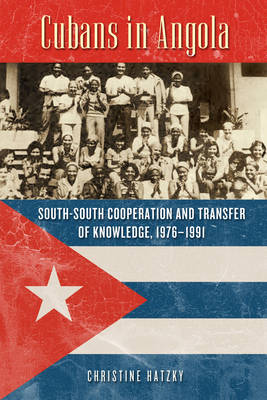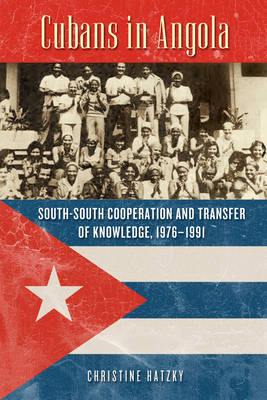
- Afhalen na 1 uur in een winkel met voorraad
- Gratis thuislevering in België vanaf € 30
- Ruim aanbod met 7 miljoen producten
- Afhalen na 1 uur in een winkel met voorraad
- Gratis thuislevering in België vanaf € 30
- Ruim aanbod met 7 miljoen producten
Zoeken
€ 67,95
+ 135 punten
Omschrijving
Angola, a former Portuguese colony in southern central Africa, gained independence in 1975 and almost immediately plunged into more than two decades of conflict and crisis. Fidel Castro sent Cuban military troops to Angola in support of the Movimento Popular de Libertação de Angola (MPLA), leading to its ascension to power despite facing threats both international and domestic. What is less known, and what Cubans in Angola brings to light, is the significant role Cubans played in the transformation of civil society in Angola during these years. Offering not just military support but also political, medical, administrative, and technical expertise as well as educational assistance, the Cuban presence in Angola is a unique example of transatlantic cooperation between two formerly colonized nations in the global South.
Specificaties
Betrokkenen
- Auteur(s):
- Uitgeverij:
Inhoud
- Aantal bladzijden:
- 404
- Taal:
- Engels
- Reeks:
Eigenschappen
- Productcode (EAN):
- 9780299301040
- Verschijningsdatum:
- 11/02/2015
- Uitvoering:
- Paperback
- Formaat:
- Trade paperback (VS)
- Afmetingen:
- 152 mm x 229 mm
- Gewicht:
- 594 g

Alleen bij Standaard Boekhandel
+ 135 punten op je klantenkaart van Standaard Boekhandel
Beoordelingen
We publiceren alleen reviews die voldoen aan de voorwaarden voor reviews. Bekijk onze voorwaarden voor reviews.











